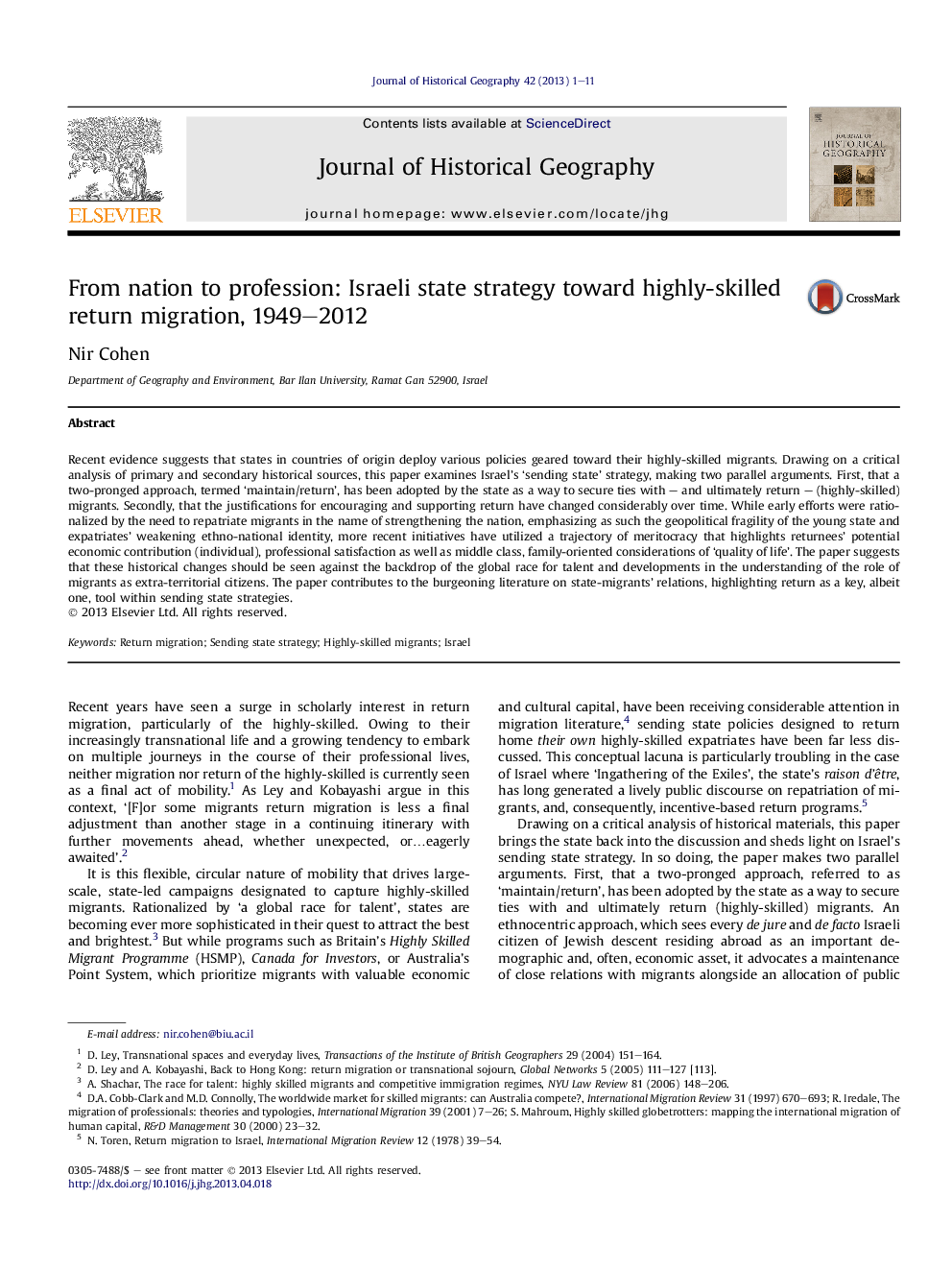| Article ID | Journal | Published Year | Pages | File Type |
|---|---|---|---|---|
| 7448305 | Journal of Historical Geography | 2013 | 11 Pages |
Abstract
Recent evidence suggests that states in countries of origin deploy various policies geared toward their highly-skilled migrants. Drawing on a critical analysis of primary and secondary historical sources, this paper examines Israel's 'sending state' strategy, making two parallel arguments. First, that a two-pronged approach, termed 'maintain/return', has been adopted by the state as a way to secure ties with - and ultimately return - (highly-skilled) migrants. Secondly, that the justifications for encouraging and supporting return have changed considerably over time. While early efforts were rationalized by the need to repatriate migrants in the name of strengthening the nation, emphasizing as such the geopolitical fragility of the young state and expatriates' weakening ethno-national identity, more recent initiatives have utilized a trajectory of meritocracy that highlights returnees' potential economic contribution (individual), professional satisfaction as well as middle class, family-oriented considerations of 'quality of life'. The paper suggests that these historical changes should be seen against the backdrop of the global race for talent and developments in the understanding of the role of migrants as extra-territorial citizens. The paper contributes to the burgeoning literature on state-migrants' relations, highlighting return as a key, albeit one, tool within sending state strategies.
Keywords
Related Topics
Social Sciences and Humanities
Arts and Humanities
History
Authors
Nir Cohen,
